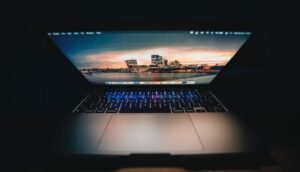Can AI Hack?
Artificial Intelligence (AI) has become a ubiquitous technology in our modern world. It powers everything from voice assistants to autonomous vehicles. However, with this increasing reliance on AI, concerns about its security vulnerabilities have arisen. In this article, we explore the question: Can AI hack?
Key Takeaways:
- AI has the potential to be used in hacking activities due to its ability to analyze vast amounts of data and mimic human behavior.
- While AI can be vulnerable to attacks, it can also be leveraged as a powerful tool for cybersecurity, helping to detect and prevent attacks.
- As AI continues to evolve, it is crucial to prioritize security measures to mitigate potential risks and ensure the safe use of this technology.
**AI’s capabilities** make it an attractive tool for hackers, as it can analyze large datasets and identify patterns that humans might overlook. *Imagine an AI-powered bot relentlessly attempting different password combinations until it successfully gains access to a system.* This ability to automate and scale attacks increases the potential impact and damage that hackers can cause.
**AI algorithms** are also susceptible to attacks. *By manipulating input data, an attacker can deceive an AI system into making incorrect decisions or providing inaccurate outputs.* This raises concerns, especially in critical industries such as finance and healthcare, where AI is increasingly relied upon for decision-making processes.
**Table 1: Examples of AI-based Attacks and Vulnerabilities**
| Attack/Vulnerability | Description |
|---|---|
| Adversarial Attacks | Using modified input data to mislead AI systems. |
| Data Poisoning | Injecting malicious data into training datasets to influence AI model behavior. |
| Model Inversion | Exploiting an AI system to gain access to sensitive information by reversing the learning process. |
On the other hand, **AI can be a valuable asset** in combating cyber threats. By leveraging AI’s analytical capabilities, cybersecurity systems can quickly detect and respond to attacks. *For example, AI algorithms can identify abnormal patterns in network traffic, allowing for early detection of potential breaches.* Additionally, AI can automate threat analysis and response, enabling real-time defense against emerging attacks.
**Table 2: Benefits of AI in Cybersecurity**
| Benefit | Description |
|---|---|
| Advanced Threat Detection | AI algorithms can analyze large volumes of data to identify patterns and anomalies indicative of cyber threats. |
| Real-time Response | AI can automate threat response, enabling faster and more efficient mitigation of attacks. |
| User Behavior Analytics | AI can detect and flag suspicious user behavior, helping to prevent insider threats. |
**AI-powered hacking tools** have already begun to emerge. These tools leverage AI’s capabilities to identify vulnerabilities, automate attacks, and even adapt their strategies based on the target’s defenses. Governments and organizations around the world are increasingly recognizing the need to strengthen their cybersecurity measures to defend against AI-enabled threats.
Addressing AI Security Concerns
- Implement robust **data protection measures** to safeguard sensitive information from unauthorized access.
- Regularly **update AI systems** with the latest security patches and fixes to address vulnerabilities.
- Engage in **ethical AI practices** by ensuring transparency, accountability, and fairness in AI algorithms and systems.
- Establish **collaborative efforts** between industry, academia, and governing bodies to share knowledge and best practices in AI security.
**Table 3: AI Security Best Practices**
| Best Practice | Description |
|---|---|
| Data Encryption | Encrypting sensitive data to protect it from unauthorized access. |
| Vulnerability Assessments | Regularly testing AI systems for weaknesses and vulnerabilities. |
| Responsible AI Design | Ensuring AI systems are built with ethics and fairness in mind. |
As AI continues to advance, so too does the potential for both malicious and beneficial use. It is vital for individuals, organizations, and policymakers to stay informed about the evolving landscape of AI security to make informed decisions about its deployment and protection from potential threats.

Common Misconceptions
AI is all-powerful and can hack anything
One common misconception people have about AI is that it has unlimited power and can hack into anything it wants. While AI can be highly capable in certain tasks, it does not possess omnipotent hacking abilities.
- AI is only as powerful as its programming and data inputs
- Hacking requires specific knowledge and expertise, which AI may not possess
- AI hacking still requires vulnerabilities or backdoors in the target system
All AI is malicious and exists solely for hacking
Another misconception is that all AI is inherently malicious and designed solely for hacking purposes. While it is true that AI can be used for malicious activities, such as developing sophisticated hacking algorithms, not all AI serves this purpose.
- AI has wide-ranging applications beyond hacking, including healthcare, finance, and transportation
- AI can be used to enhance security and detect hacking attempts
- Most AI systems are developed and used for legitimate, non-malicious purposes
AI can hack individual devices in real-time
Many people believe that AI has the ability to hack individual devices in real-time, allowing for immediate access to personal information. In reality, hacking requires more than just AI capabilities and often depends on various factors.
- Access to individual devices typically requires physical or remote exploitation of vulnerabilities
- AI cannot magically bypass security measures without a specific target vulnerability
- Hacking is often a complex process that requires planning, knowledge, and time
AI is autonomous and can hack without human intervention
Some individuals perceive AI as a completely autonomous entity that can hack without any human intervention or control. However, AI is still a tool developed and operated by humans, requiring human input and involvement for any hacking activities.
- AI requires human programming and instructions to perform any task
- AI alone cannot make decisions or take actions beyond its programmed capabilities
- Human oversight is necessary to control and monitor AI’s behavior
AI hacking is unstoppable and cannot be prevented
Lastly, there is a misconception that AI hacking is unstoppable and cannot be effectively prevented. While AI can introduce new challenges and advanced techniques to hacking, it does not render all cybersecurity measures useless.
- Effective cybersecurity practices can mitigate AI-driven hacking attempts
- Sophisticated AI-based defense mechanisms can detect and counter AI hacking attempts
- Constant improvement and adaptation in cybersecurity can stay ahead of AI hacking techniques

Machine Learning Algorithms
Machine learning algorithms are an essential component of artificial intelligence systems. These algorithms enable computers to learn from data and make predictions or decisions without being explicitly programmed. Here are some interesting machine learning algorithms:
| Algorithm | Description |
|——————|————————————————————-|
| Gradient Boosting | Boosts weak models by combining them into a strong predictor |
| Random Forest | Uses multiple decision trees for improved accuracy |
| Support Vector | Classifies data by creating hyperplanes in high-dimensional space |
| K-means | Divides data into clusters based on similarity |
| Neural Network | Mimics the human brain with interconnected nodes |
Artificial Neural Networks
Artificial neural networks (ANNs) are a subset of machine learning algorithms. They are inspired by the structure and function of the human brain and consist of interconnected nodes. Here are some intriguing concepts related to ANNs:
| Concept | Description |
|————————|————————————————————-|
| Activation Function | Determines the output of a node based on input |
| Backpropagation | Adjusts the weights of connections to minimize errors |
| Deep Learning | Utilizes multiple layers of neural networks for complex tasks |
| Convolutional Networks | Designed for image and video processing |
| Recurrent Networks | Capable of handling sequential data |
AI Applications
Artificial intelligence finds its applications in various fields, revolutionizing industries and enhancing human capabilities. Here are some remarkable applications of AI:
| Application | Description |
|——————-|————————————————————–|
| Natural Language | Enables computers to understand and generate human language |
| Computer Vision | Empowers machines to analyze and interpret visual information |
| Autonomous Driving| Develops self-driving vehicles for increased road safety |
| Healthcare | Assists in disease diagnosis and personalized treatments |
| Robotics | Enhances the capabilities of robots in various tasks |
Ethical Considerations
The deployment of artificial intelligence comes with ethical considerations that need to be addressed. Here are some intriguing ethical challenges associated with AI:
| Challenge | Description |
|————————|——————————————————————–|
| Bias in Data | AI systems can perpetuate biases present in the training datasets |
| Privacy Intrusion | Raises concerns over surveillance and personal data collection |
| Unemployment | The automation of jobs may lead to a significant loss of employment |
| Autonomous Weapons | The development of lethal AI-powered weapons raises ethical concerns|
| Lack of Accountability | Decision-making by AI systems may be difficult to attribute or audit|
AI in Pop Culture
Artificial intelligence has been a subject of fascination in pop culture, often portrayed in various forms. Here are some notable examples:
| Media | Description |
|——————–|————————————————————-|
| HAL 9000 | The sentient computer in the movie “2001: A Space Odyssey” |
| The Terminator | A cyborg assassin from the film series “The Terminator” |
| Ex Machina | Explores the relationship between AI and human interaction |
| WALL-E | A sentient robot in the animated film “WALL-E” |
| Westworld | A theme park populated by AI-driven human-like androids |
The Turing Test
The Turing test, proposed by Alan Turing in 1950, assesses a machine’s ability to exhibit intelligent behavior indistinguishable from that of a human. Here are some interesting facts about the Turing test:
| Fact | Description |
|————————————————————-|———————————————————————————————–|
| Loebner Prize | An annual competition where AI programs attempt to pass the Turing test |
| Eugene Goostman | A chatbot that achieved a 33% pass rate in the 2014 Turing test |
| Luddite Fallacy | The belief that AI will lead to widespread job loss is seen as a modern equivalent of this fallacy |
| Critique by John Searle | He argues that computers merely manipulate symbols and lack true understanding |
| Controversies about passing the Turing test as a measure of intelligence | Many debate whether the test truly signifies intelligence or is merely a mimicry of behavior |
AI in Fiction
Artificial intelligence often plays a significant role in works of fiction, enriching the narrative and captivating readers. Here are some remarkable instances:
| Work of Fiction | Description |
|——————————|————————————————————|
| “I, Robot” | Explores ethical dilemmas involving humanoid robots |
| “Frankenstein” | Features the creation of an artificial lifeform |
| “Blade Runner” | Raises questions about the nature of artificial existence |
| “Neuromancer” | Depicts a dystopian society intertwined with AI |
| “The Matrix” | Portrays a simulated reality controlled by machines |
The Future of AI
The field of artificial intelligence continues to evolve rapidly, leading to exciting possibilities and potential advancements. Here are some intriguing visions for the future of AI:
| Vision | Description |
|———————————|————————————————————————-|
| Conscious AI | AI systems capable of self-awareness and subjective experiences |
| Augmented Human Intelligence | Enhancing human intelligence through AI-powered cognitive assistance |
| AI in Space Exploration | AI systems assisting in space missions, exploration, and colonization |
| Brain-Computer Interfaces | Direct communication between the human brain and external AI devices |
| Unified AI Consciousness | A collective intelligence formed by interconnected AI systems |
Artificial intelligence’s rapid progress holds immense potential, yet it faces challenges regarding ethics, accountability, and societal impact. As AI continues to advance, it is essential to ensure responsible deployment, addressing ethical considerations while leveraging its transformative capabilities.
Frequently Asked Questions
Can AI Hack?
Is it possible for AI to hack computer systems?
No, AI itself cannot hack computer systems. AI is a system or a program that needs to be programmed by a human to perform specific tasks. It does not possess the capability to independently hack or break into computer systems without human intervention.
Can AI be used as a tool for hacking by malicious individuals?
Yes, AI can be used as a tool for hacking by malicious individuals. Just like any other technology, AI can be misused or repurposed for malicious activities. However, it is important to note that the actions are carried out by individuals utilizing AI and not by AI itself.
How can AI be used in hacking activities?
AI can be used in hacking activities to automate certain tasks, such as scanning for vulnerabilities, executing phishing attacks, or password cracking. It can learn and adapt to patterns, making it potentially more efficient for certain hacking techniques. However, it still requires human guidance and expertise to perform targeted attacks.
What steps can organizations take to protect against AI-driven hacking attempts?
Organizations can take several steps to protect against AI-driven hacking attempts. These may include implementing robust cybersecurity measures, regularly updating software and systems, training employees on security best practices, conducting vulnerability assessments, and staying informed about the latest threats and attack techniques.
Are there any ethical concerns related to AI-powered hacking?
Yes, there are ethical concerns related to AI-powered hacking. The use of AI in hacking activities raises questions about privacy, security, and potential misuse of advanced technologies. It highlights the need for ethical guidelines, legislation, and responsible use of AI to mitigate risks and protect individuals and organizations.
Can AI be used for defensive purposes in cybersecurity?
Yes, AI can be used for defensive purposes in cybersecurity. AI-powered systems can help analyze large amounts of data, detect anomalies, and identify potential threats in real-time. They can enhance incident response capabilities and aid in proactive defense measures, providing organizations with a stronger defense against hacking attempts.
Is AI capable of evolving and improving its hacking abilities on its own?
No, AI cannot autonomously evolve or improve its hacking abilities. AI systems are designed to follow predefined algorithms and models, and their capabilities are limited to what they have been programmed to do. Any improvements or advancements would require human intervention and continuous development of the AI system.
What are the consequences of AI-driven hacking?
The consequences of AI-driven hacking can vary, ranging from data breaches and financial losses to compromised privacy and reputational damage. AI can potentially enable sophisticated attacks that are harder to detect and mitigate. It underscores the importance of robust cybersecurity measures and constant vigilance in defending against such attacks.
How can individuals protect themselves from AI-powered hacking attempts?
Individuals can protect themselves from AI-powered hacking attempts by employing standard cybersecurity practices such as using strong, unique passwords, enabling multi-factor authentication, being cautious of phishing attempts, keeping software and devices up to date, and using reliable security software.
What is the future of AI in hacking and cybersecurity?
The future of AI in hacking and cybersecurity is likely to see increased utilization of AI both by malicious actors and security professionals. As AI technology evolves, it will be crucial to stay updated with the latest advancements, constantly improve defensive mechanisms, and develop ethical frameworks to navigate the challenges posed by AI-driven hacking.




